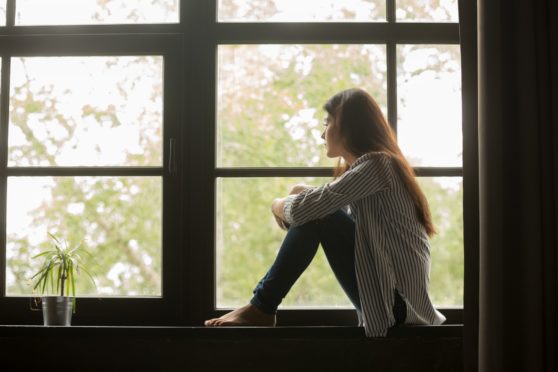
Our lives, as we have known them, are being dismantled in real time. The spectre – thankfully, for most of us, not yet the reality – of Covid-19 will soon engulf us and, when it leaves, it will leave us transformed.
As we all work blind, fighting a disease we cannot see, waiting for symptoms we have yet to feel, in a time frame unspecified, and with a cure still unknown, it is the uncertainty of when or where this will end that is hardest to bear.
We may all be in this together, with a virus that recognises no bounds, and where the principle of collective responsibility has never meant more. But in the wee small hours, we are all going through our personal hells.
We each have our own uhtcearu; the Anglo-Saxon word for that fitful unease, the predawn anxiety that waits for the light to dispel the darkness. But then, when you awake, the nightmare has no end, playing on, as it will for some time yet, into another day.
Living in a constant state of hyper vigilance is tough, and at times I can feel myself sinking. Who doesn’t?
But ultimately, this will be a big story of how a contagion changed the world. How society as a group altered its behaviours simply to survive. And stripped down, it will be about each and every one of us playing our small role and understanding that what we do today, tomorrow and the day after that will alter history.
Individual heartbreak, single acts of heroism, small acts of kindness, grand charitable gestures, community-led initiatives and massive programmes of state intervention, they will all play their part in how this plays out.
Already our country is unrecognisable. The streets of the city where I live, our capital, are quiet, the few people that are around wear face masks. Runners step on to the road to avoid close contamination from others and every cough is greeted with a recriminatory stare. Shops shut, bars empty, schools locked, and homes with their doors tightly closed.
This illness is coming, and it is changing us all.
Governments working together, politicians putting differences aside. And at a stroke, political orthodoxy torn asunder with state intervention on a scale unimagined by any Tory prime minister. And with his chancellor writing blank cheques to save jobs, pay mortgages, stop evictions and to keep the self-employed afloat.
With private sector employees now effectively instruments of the state, transport nationalised and the health service now being recognised, not just in warm words, but with much-needed hard cash, it is not too far a stretch to suggest Jeremy Corbyn has left the Labour leadership safe in Boris Johnson’s hands.
Low-skilled workers, once devalued and disrespected, have become essential actors to the national effort. Immigration, now a necessary tool of recovery and prisoners, once victim to the “lock ‘em up and throw away the key” mentality of successive home secretaries, now a population to be treated with some degree of empathy and literally, for some, a sense of freedom.
But it has been brutal. We have changed habits of a lifetime, even become conscious of how often we touch our face, how little we washed our hands, and ignored the personal space of others. The powers we are living under are Draconian, and the consequences monumental. Our economy is wrecked.
After this, however, there will be a reckoning and there will be things we can fix. But for now, as the First Minister has reminded us, you cannot breathe life back into the dead, so stay home and stay safe.

Enjoy the convenience of having The Sunday Post delivered as a digital ePaper straight to your smartphone, tablet or computer.
Subscribe for only £5.49 a month and enjoy all the benefits of the printed paper as a digital replica.
Subscribe